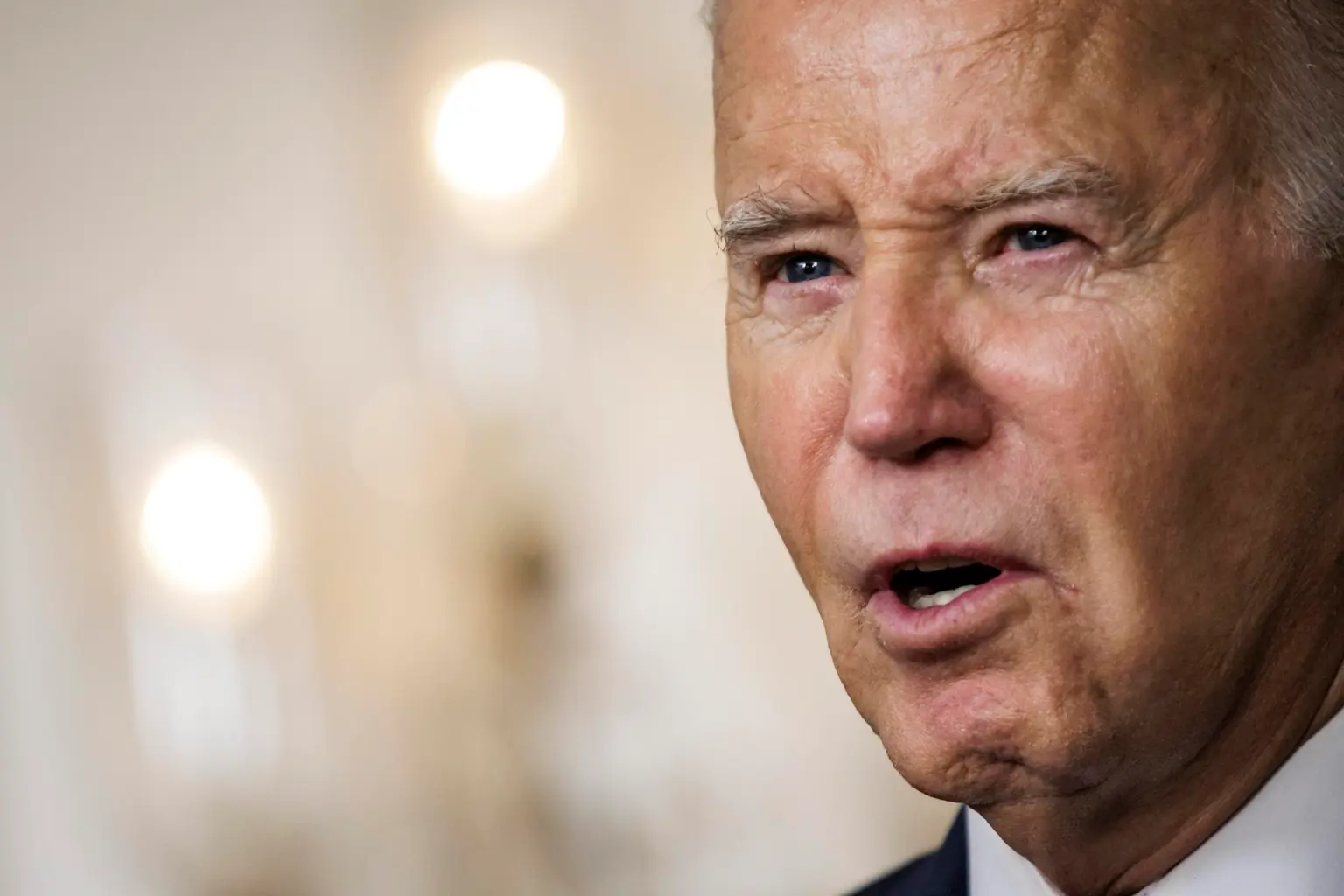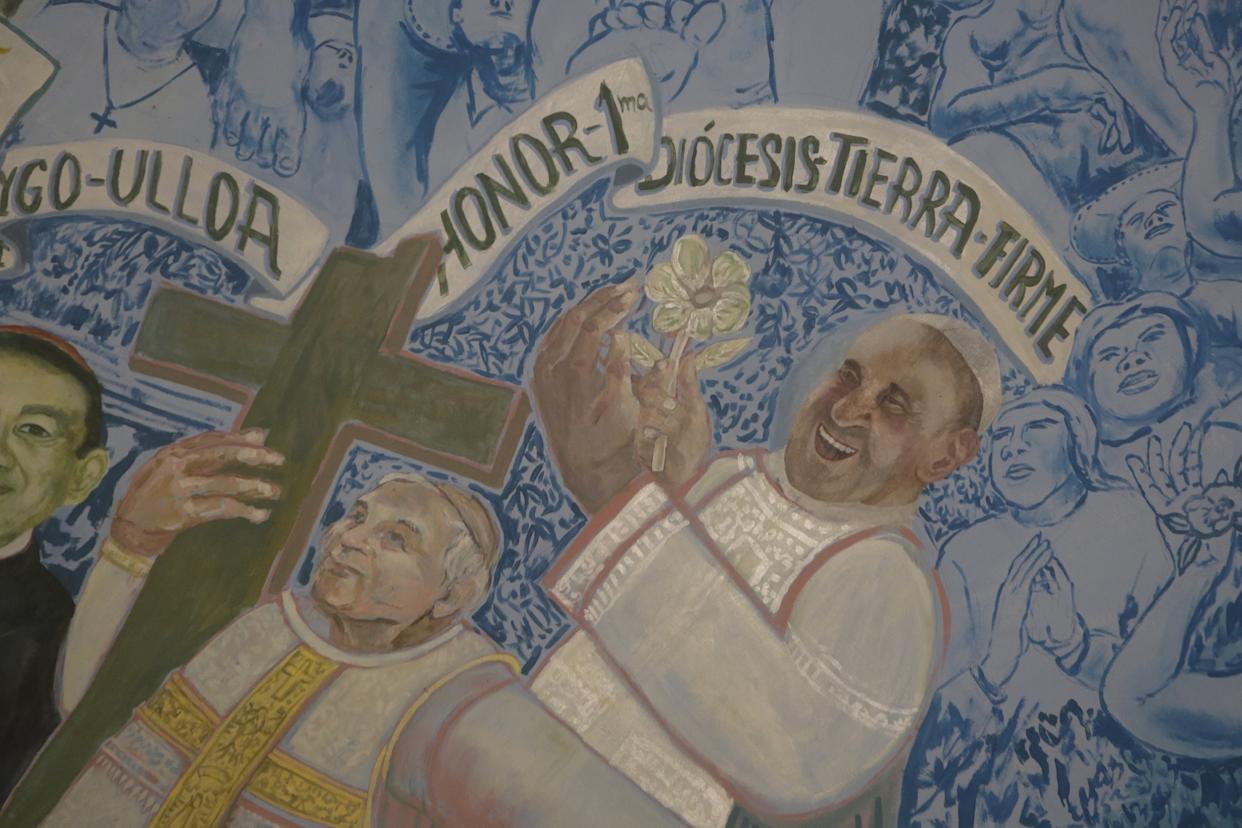International
The US accuses Russia of using its nationals as a “exchange currency”

As part of the anniversary of the arrest in Russia of the American journalist of The Wall Street Journal, Evan Gershkovich, the United States accused Moscow on Friday of using its citizens as a “exchange currency.”
“We will continue to denounce and impose costs for Russia’s atrocious attempts to use Americans as a bargaining chip,” President Joe Biden said in a statement.
Gershkovich, 33, was arrested at the end of March 2023 in Yekaterinburg, capital of the Urals, and on April 7 he was formally accused of espionage by the Federal Security Service (FSB, former KGB).
According to the FSB, “he was on behalf of the American side, he compiled secret information about the activities of one of the companies of the Russian military industrial complex.”
This week, the Russian Justice extended his arrest until June 30. By then, he will be in pretrial detention for one year and three months.
Biden said that the United States will continue to work “every day to achieve his release” and will continue to remain “firm” against all those who “seek to attack the press or attack journalists, the pillars of free society.”
“Journalism is not a crime and Evan went to Russia to do his job as a reporter, risking his safety to shed light on the truth about Russia’s brutal aggression against Ukraine,” he said.
In another similar statement, the Secretary of State, Antony Blinken, stated that to date “Russia has not provided any proof of irregularities” because “Evan did nothing wrong.”
“Journalism is not a crime. In the year since Evan’s unjust arrest, Russia’s already restrictive media landscape has become more oppressive, with a continuous attack on independent voices that point to any form of dissent,” he said.
Blinken recalled Paul Whelan, a former Marine infantryman, who was arrested in Moscow at the end of 2018 and sentenced for espionage to 16 years in prison in 2020.
The United States “continues to be committed to bringing Evan and Paul home,” said the head of American diplomacy.
“People are not a currency. Russia should put an end to its practice of arbitrarily detaining people for purposes of political influence and should immediately release Evan and Paul,” he said.
The Wall Street Journal published this Friday in white part of the cover of its printed edition to remember its correspondent in Russia, Evan Gershkovich.
About the blank space the headline ‘Your story should be here’ and that accompanies a note about what the journalist has not been able to enjoy on a personal and professional level during the year in which he has been in prison.
The digital edition publishes instead of the blank space a photo of the journalist with the same article but under the title of ‘Evan Gershkovich, a year stolen in a Russian prison’, which also includes biographical data.
The Wall Street Journal also published other articles about the danger faced by journalists.
“Evan Gershkovich was supposed to be with his friends in Berlin the first week of April 2023,” the report begins and highlights the plans that the young reporter had to share with a group of journalist friends.
“It was the beginning of his stolen year,” the note adds.
International
DHS Secretary Kristi Noem’s Purse Stolen in D.C. Restaurant Heist

The purse of Kristi Noem, Secretary of the Department of Homeland Security, was stolen on Sunday night at a restaurant in Washington, D.C., Fox News Digital confirmed through several agency sources.
The handbag, taken by a white male wearing a mask, reportedly contained $3,000 in cash along with personal documents, including her passport, keys, driver’s license, and DHS badge, according to an agency spokesperson.
“Her entire family was in town, including her children and grandchildren. She was celebrating her retirement by treating them to dinner, activities, and Easter gifts,” the spokesperson added.
Crime continues to be a significant issue in the U.S. capital, particularly theft. However, violent crime reached its lowest level in 30 years last year, according to the Office of the Attorney General at the time.
International
Pope Francis: The Quiet Architect Behind the U.S.-Cuba Thaw

When then-U.S. President Barack Obama and Cuban President Raúl Castro announced the reestablishment of diplomatic relations in December 2014—after decades of hostility—there was a third figure present in both speeches: Pope Francis.
This thaw in U.S.-Cuba relations—later reversed by Donald Trump—was the result of behind-the-scenes negotiations personally encouraged by Pope Francis, who passed away on Monday at the age of 88, just over a year after becoming head of the Catholic Church.
Upon learning the news of the breakthrough, the pontiff humbly stated, “This was made possible thanks to the ambassadors and to diplomacy,” which he called “a noble, very noble job.”
In 2015, months after the announcement, Raúl Castro visited the Vatican and met with the pope. Over time, Castro developed a fondness for Francis that he never had for his predecessors, Benedict XVI and John Paul II. “If the Pope continues talking like this, sooner or later I’ll start praying again and return to the Catholic Church—and I’m not joking,” said the younger Castro, who, like his brother Fidel (1926–2016), had been educated by Jesuits—the same order to which Pope Francis belonged.
Pope Francis visited Cuba later that year. Just days before his arrival, the Cuban government announced the pardon of 3,522 common prisoners as an act of clemency.
While in Havana, the pope met with Fidel Castro, who gave him a first edition of the book Fidel and Religion by Brazilian friar and liberation theologian Frei Betto.
Criticism from the Opposition
Francis’s diplomatic approach also drew criticism from parts of the Cuban opposition. In a 2022 interview with Univision, the pope revealed he had “a human relationship” with Raúl Castro.
International
Dominican Republic Declares Three Days of Mourning for Pope Francis

Dominican Republic President Luis Abinader has declared three days of national mourning starting Tuesday following the death of Pope Francis, who passed away on Monday at the age of 88 in his residence at the Casa Santa Marta.
In an official decree, Abinader highlighted the pope’s legacy “as a global leader who promoted significant reforms within the Catholic Church and was known for his humility, openness to dialogue, and commitment to peace among nations.”
During the mourning period, the national flag will be flown at half-staff at military facilities and public buildings.
According to a statement from the Office of the Presidency, although Pope Francis never visited the Dominican Republic during his papacy, he maintained a close relationship with the country. He expressed solidarity and empathy during difficult times, including offering prayers for the victims of the recent tragedy at a Santo Domingo nightclub on April 8, which claimed 232 lives and left more than 180 injured.
-

 Central America5 days ago
Central America5 days agoNicaraguan Exiles to Mark 7th Anniversary of 2018 Protests with Global Commemorations
-

 International5 days ago
International5 days agoDominican ‘False Hero’ Arrested for Faking Role in Nightclub Collapse That Killed 231
-

 Central America4 days ago
Central America4 days agoUN complaint filed against Costa Rica over detention of migrant children
-

 International4 days ago
International4 days agoACLU seeks emergency court order to stop venezuelan deportations under Wartime Law
-

 Central America2 days ago
Central America2 days agoSenator Van Hollen Meets with Deported MS-13 Member in El Salvador; Trump and Bukele React
-

 International3 days ago
International3 days agoThousands rally nationwide against Trump’s threat to U.S. democracy
-

 International2 days ago
International2 days agoPope Francis Appears for Easter Blessing, Calls for Peace and Religious Freedom
-

 Central America20 hours ago
Central America20 hours agoCardinal Rodríguez to Attend Funeral of Pope Francis: “He Was Very Dear to Me”
-

 Central America20 hours ago
Central America20 hours agoNicaragua’s Ortega and Murillo Mourn Pope Francis, Acknowledge ‘Difficult’ Relationship
-

 International20 hours ago
International20 hours agoDominican Republic Declares Three Days of Mourning for Pope Francis
-

 International20 hours ago
International20 hours agoDHS Secretary Kristi Noem’s Purse Stolen in D.C. Restaurant Heist
-

 International20 hours ago
International20 hours agoPope Francis: The Quiet Architect Behind the U.S.-Cuba Thaw















